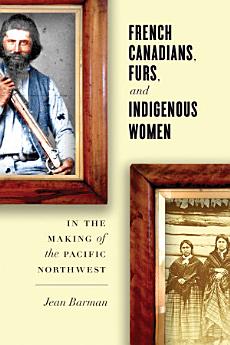French Canadians, Furs, and Indigenous Women in the Making of the Pacific Northwest
About this ebook
In French Canadians, Furs, and Indigenous Women in the Making of the Pacific Northwest, Jean Barman rewrites the history of the Pacific Northwest from the perspective of French Canadians attracted by the fur economy, the indigenous women whose presence in their lives encouraged them to stay, and their descendants. Joined in this distant setting by Quebec paternal origins, the French language, and Catholicism, French Canadians comprised Canadiens from Quebec, Iroquois from the Montreal area, and métis combining Canadien and indigenous descent. For half a century, French Canadians were the largest group of newcomers to this region extending from Oregon and Washington east into Montana and north through British Columbia. Here, they facilitated the early overland crossings, drove the fur economy, initiated non-wholly-indigenous agricultural settlement, eased relations with indigenous peoples, and ensured that, when the region was divided in 1846, the northern half would go to Britain, giving today’s Canada its Pacific shoreline.
About the author
Jean Barman is a nationally recognized historian and author, and a professor emeritus at the University of British Columbia. She is the recipient of the 2014 George Woodcock Lifetime Achievement Award, the 2012 Queen Elizabeth II Diamond Jubilee Medal, the 2006 City of Vancouver Book Prize, the 2004 Lieutenant-Governor’s Medal for best book on British Columbia history, and numerous other honours and awards. She is the author or editor of several books, including British Columbia: Spirit of the People (2008, Harbour Publishing), The West beyond the West: A History of British Columbia (3rd ed., 2007, rev. 1996, orig. 1991, University of Toronto Press), and Stanley Park’s Secret: The Forgotten Families of Whoi Whoi, Kanaka Ranch, and Brockton Point (2005, Harbour Publishing).





